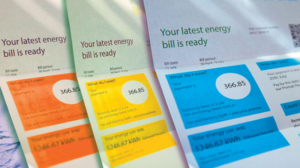The political leadership of the Ministry of Environment and Energy is taking a defensive stance against inflated wholesale market prices at the risk of large price increases in electricity, planning to reinstate a measure to tax excess profits in the power generation sector.
The focus of the Environment Ministry is on the summer months, when wholesale prices have skyrocketed more than 200% in one week, resulting in producers enjoying increased excess revenues.
According to Newmoney, Minister Theodoros Skylakakis is reportedly leaning towards a tax on excess profits, to be implemented for the period from July 1 to September 30, but final decisions will be made tomorrow,at an emergency meeting at the Maximou Mansion with the political leadership of the Ministry of Environment. This is a measure that is estimated to need the approval of the European Commission in order to proceed.
The taxation of “sky-high” profits was announced two years ago by the prime minister in parliament, paving the way for the collection of 373 million euros. Despite suggestions that the tax should be put up to an extraordinary levy as was done for refineries, there are thoughts on the part of the Minister of Environment and Energy to reintroduce a cap per technology as was done during the energy crisis.
The cap on the wholesale electricity market ceased to apply at the beginning of the year with the withdrawal of the emergency measures when gas prices started to fall. This is because as the fuel prices decelerated, the average electricity exchange price declined, resulting in a lower price than the corresponding ceiling prices established for gas, lignite, hydro and renewable energy plants.
The cap measure had been taken in July 2022 amid the geopolitical crisis in order to raise additional revenue and thereby transfer it to the Energy Transition Fund, which financed subsidies on electricity bills.
The cap put more than 3.5 billion into the coffers of the TEM, of which more than 2 billion euros had come from renewables.
The tax is expected to open new fronts with power generators, who are currently also being scrutinized by RAEA for the way they submit their bids, and there are objections to the extension of the measure in September. Competent sources say that in early autumn the cap measure makes no sense, as there will be a drop in prices due to the increased production of renewable energy sources, resulting in large energy cuts.
The price picture
For the rise in the wholesale price, the Ministry of Energy blames cross-border trade, in particular the reduction of transport capacity between Hungary and the rest of Europe, but also between Bulgaria and Romania, as well as the maintenance of the Kozloduy nuclear power plant in Bulgaria, which takes significant amounts of energy away from the market.
But the continued rise in prices is creating increased vigilance in the government as these prices have a chain effect on electricity tariffs discounting increases in electricity for the August-September two months which if they continue at the same intensity, it is possible that we may see subsidies being returned on an emergency basis. In fact, since last Thursday, extreme daily fluctuations in the wholesale market have come under the microscope of the regulator, which is investigating speculation issues.
For today, July 15, the price of electricity in the midday hours when cheap solar PV energy is produced ranged from 60 euros to 83 euros per megawatt hour. These prices soar in the evening hours when the expensive natural gas units enter the system as in the two hours from 8 to 10 in the evening the wholesale price will be 600 euros per megawatt hour.
Ask me anything
Explore related questions





